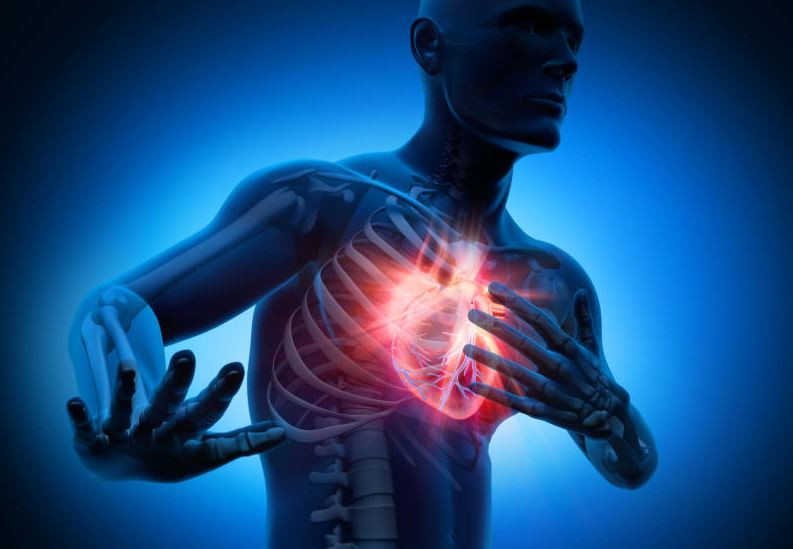
Thyroid disease is a general term for a medical condition that keeps your thyroid from making the right amount of hormones. It can affect people of all ages.
According to the American Thyroid Association, your thyroid is a small, butterfly-shaped gland located at the front of your neck under your skin. It’s a part of your endocrine system and controls many of your body’s important functions by producing and releasing thyroid hormones, like thyroxine (T4) and triiodothyronine (T3).
According to endocrinologists, the two main types of thyroid disease are hypothyroidism (underactive thyroid) and hyperthyroidism (overactive thyroid). But they each have several conditions that can cause them.
Conditions that can cause hypothyroidism include Hashimoto’s disease, a lifelong chronic autoimmune condition that can cause an underactive thyroid. It’s the most common cause of hypothyroidism in countries with widely available iodized salt and other iodine-enriched foods.
Your thyroid needs iodine to make thyroid hormone, so a lack of the mineral in your diet can lead to hypothyroidism. It’s the most common cause of hypothyroidism in countries that don’t have iodized salt widely available. It often causes goiter (enlarged thyroid).
Sometimes, babies are born with a missing or underactive thyroid. About 1 in every 2,000 to 4,000 babies have congenital hypothyroidism, according to data from the American Thyroid Association.
Conditions that can cause hyperthyroidism include Graves’ disease, a chronic autoimmune condition that causes an overactive thyroid. It’s the most common cause of hyperthyroidism.
Abnormal lumps on your thyroid gland, known as thyroid nodules, could also lead to hyperthyroidism if they are hyperfunctioning. When you have too much iodine in your body, your thyroid makes more thyroid hormones than you need, causing hyperthyroidism.
- Stroke spiking in younger adults, new study reveals
- Neurological conditions that come with aging on the rise in Kenya, warn experts
- Pregnancy: Embracing the awkward moments with grace
- When family and friends vanish: A stroke survivor's lonely struggle
Keep Reading
Dr Ngugi adds that postpartum thyroiditis, a relatively rare condition that affects some birthing parents after pregnancy, can cause both hypothyroidism and hyperthyroidism at different times. An estimated 5 percent of people may experience this in the year after giving birth. It typically causes hyperthyroidism first, followed by hypothyroidism. It’s usually temporary.
“There are a variety of symptoms you could experience if you have thyroid disease. Unfortunately, symptoms of a thyroid condition are often very similar to the signs of other medical conditions and stages of life. This can make it difficult to know if your symptoms are related to a thyroid issue or something else entirely,” explains Dr Roselynn Ngugi.
According to Dr Ngugi, the symptoms of thyroid disease can be divided into two groups — those related to having too much thyroid hormone (hyperthyroidism) and those related to having too little thyroid hormone (hypothyroidism).
“The symptoms are often ‘opposites’ between the two conditions. This is because hyperthyroidism speeds up your metabolism, and hypothyroidism slows down your metabolism.”
Symptoms of hypothyroidism include a slower-than-usual heart rate, feeling tired (fatigue), unexplained weight gain, feeling sensitive to cold, dry skin and dry, coarse hair, a depressed mood and heavy menstrual periods.
On the flip side, a faster-than-usual heart rate could signal hyperthyroidism. Difficulty sleeping, unexplained weight loss, feeling sensitive to heat, clammy or sweaty skin, feeling anxious, irritable, or nervous are also symptoms of hyperthyroidism.
According to Dr Ngugi, thyroid disease affects more women than men and can also lead to irregular menstrual cycles or a lack of periods (amenorrhea). Both conditions can cause an enlarged thyroid (goiter), but it’s more common in hyperthyroidism.
If you have thyroid disease, you may need to take synthetic (manufactured) thyroid replacement hormones (pills) for the rest of your life. One medication that is commonly prescribed is levothyroxine.
Thyroid diseases generally aren’t preventable. This is because most cases of thyroid disease are linked to genetics and/or caused by autoimmune conditions, which you can’t prevent.
“If thyroid disease is undiagnosed or not treated properly, it can cause complications such as
Stroke, heart failure, mood disorders, and infertility. If you have symptoms of hypothyroidism or hyperthyroidism, or notice a change in your neck’s appearance where your thyroid is, see a healthcare provider. It’s important to get a diagnosis and start treatment as early as possible,” says Dr Ngugi.
 The Standard Group Plc is a multi-media organization with investments in media platforms spanning newspaper print
operations, television, radio broadcasting, digital and online services. The Standard Group is recognized as a
leading multi-media house in Kenya with a key influence in matters of national and international interest.
The Standard Group Plc is a multi-media organization with investments in media platforms spanning newspaper print
operations, television, radio broadcasting, digital and online services. The Standard Group is recognized as a
leading multi-media house in Kenya with a key influence in matters of national and international interest.











